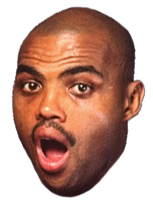Back at the beginning of the professional game, the league also had prominent Jewish players and coaches. Four of the five starters on the New York Knicks were Jewish in 1946, the first season for both the team and the NBA. “For much of the first half of the 20th century, Jews were very involved in basketball as players,” Leonard said. “Especially among second-generation Jewish immigrants, this became a means of asserting one’s American identity, one’s physical prowess.”
Professional baseball at the time could be an unwelcoming place for American Jews, particularly in the years before Hank Greenberg, who went pro in 1930. Baseball owners represented an older elite, members of a native-born class of Protestant industrialists that was anxious about accepting Jews into its ranks.
Basketball, however, was something else. A city game played in the urban neighborhoods where Jews lived, the sport was familiar. It was also relatively new, virgin territory yet to be claimed by an ethnic group. When the sport began to professionalize, the Jews were there. “It was a short step to walk into positions of ownership,” said David George Surdam, an associate professor of economics at the University of Northern Iowa and the author of the 2012 book “The Rise of the National Basketball Association.”











